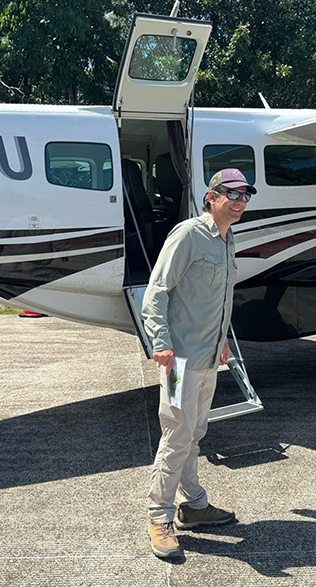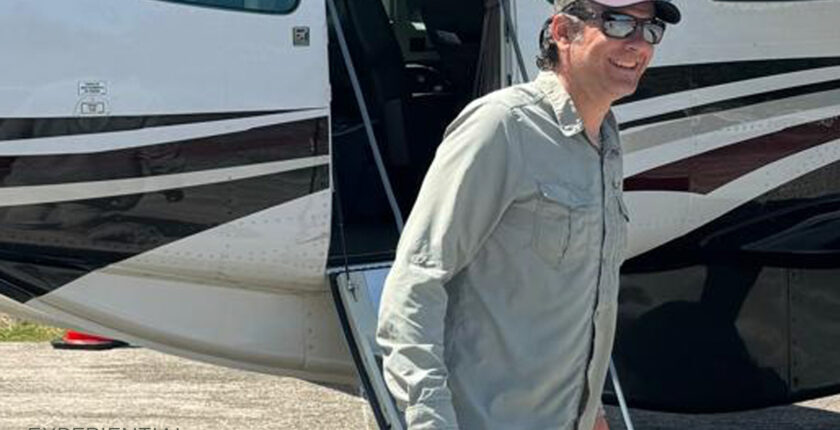A Brief Coffee Table Chat on His Journey in Travel and Exploration
A one-on-one with CEO Jesús Parrilla
What was your biggest early influence that sparked your desire to travel?
Growing up in a rural area, my childhood was a canvas painted with the vivid hues of nature. The oak forests, rivers, and hills surrounding my home were my playground, nurturing a deep-seated connection to the natural world. But it wasn’t just the local landscapes and simple way of living that captivated me. From an early age, I was entranced by the grand tales of exploration and scientific discovery from the 1800s and 1900s. The epic accounts of Alexander von Humboldt traversing the Americas, Charles Darwin’s transformative journey on the Beagle, Roald Amundsen’s icy conquest of the South Pole, Ernest Shackleton’s harrowing Antarctic expeditions, and Thor Heyerdahl’s daring Kon-Tiki voyage fired my imagination and planted the seeds of wanderlust in my soul.
These legendary voyages were more than just stories to me; they were a call to adventure. They whispered of far-off lands and cultures waiting to be discovered, of challenges to be met with courage and curiosity. In my late teens, driven by this insatiable curiosity and a yearning for discovery, I embarked on my own journey. This adventure led me to the Americas, a journey that, even after three decades, I can only describe as a homesickness detour for places I had never known but felt an inexplicable emotional connection to.
After completing my university studies, I found myself ensnared in the corporate world of America. It was a life that, although successful by many standards, felt 2 increasingly detached from the simplicity and authenticity that had once defined me. My childhood fascination with nature and exploration seemed a distant memory, overshadowed by the relentless grind of the corporate world.
What was the most important turning point in your professional travel career?
The turning point in my professional travel career came serendipitously. I was fortunate to land a position with an adventure travel company, a role that reignited the dormant passion within me. This opportunity was more than just a job; it was a reconnection with my roots, a rekindling of the flame that had been lit by the explorers of old. Through this work, I found myself traveling to places that felt like a homecoming to parts of my soul that I had forgotten. It was as if I was finally answering the call that had been with me since those early days in the countryside, fulfilling a destiny that had always been mine.
In this role, I rediscovered the joy and simplicity of exploring new terrains, the thrill of stepping into the unknown, and the profound satisfaction of connecting with different cultures and environments. It was a return to the essence of who I was, a journey back to the passion that had been my guide since childhood.
How has your approach to travel and exploration evolved over the years?
 Over the years, my approach to travel and exploration has evolved into what I can best describe as a form of modern nomadism. Nomadism is about time and space. It’s about an intimate understanding of the environment, maintaining ecological balance, and managing natural resources wisely. It demands a studious approach, mobility, agility, and flexibility. It’s about carrying only the essentials and what truly matters. My travel philosophy has grown to perceive the world as a constantly evolving entity, requiring a profound sense of respect for relationships, family, heritage, traditions, history, culture, environment, consumption, possessions, accommodation, and life itself.
Over the years, my approach to travel and exploration has evolved into what I can best describe as a form of modern nomadism. Nomadism is about time and space. It’s about an intimate understanding of the environment, maintaining ecological balance, and managing natural resources wisely. It demands a studious approach, mobility, agility, and flexibility. It’s about carrying only the essentials and what truly matters. My travel philosophy has grown to perceive the world as a constantly evolving entity, requiring a profound sense of respect for relationships, family, heritage, traditions, history, culture, environment, consumption, possessions, accommodation, and life itself.
In my earlier years, travel was primarily about the thrill of discovery and adventure. I sought out new landscapes and cultures with a sense of curiosity and excitement. However, as I gained more experience, my travels became more intentional and reflective. I began to see nomadic living not just as a means to explore new places, but as a way to deeply connect with the natural and cultural environment. This approach emphasizes the ability to travel, adapt, change, and embrace new living conditions and externalities with ease, ingenuity, vibrancy, and humbleness.
Adopting a nomadic approach to travel is now about paying respect to nature and providing a rational response to environmental conditions. This respect and rationality are what have enabled ancestral communities to safeguard their cultures and survive for centuries. My journeys are no longer just about moving from one place to another but embodying a way of life that honors the world in all its complexity and beauty.
Understanding that the world is everchanging has become central to my travels. Embracing each new experience with a commendable attitude towards every aspect of existence not only enriches my own life but also contributes to the preservation and appreciation of the diverse cultures and environments that make our world so extraordinary.

